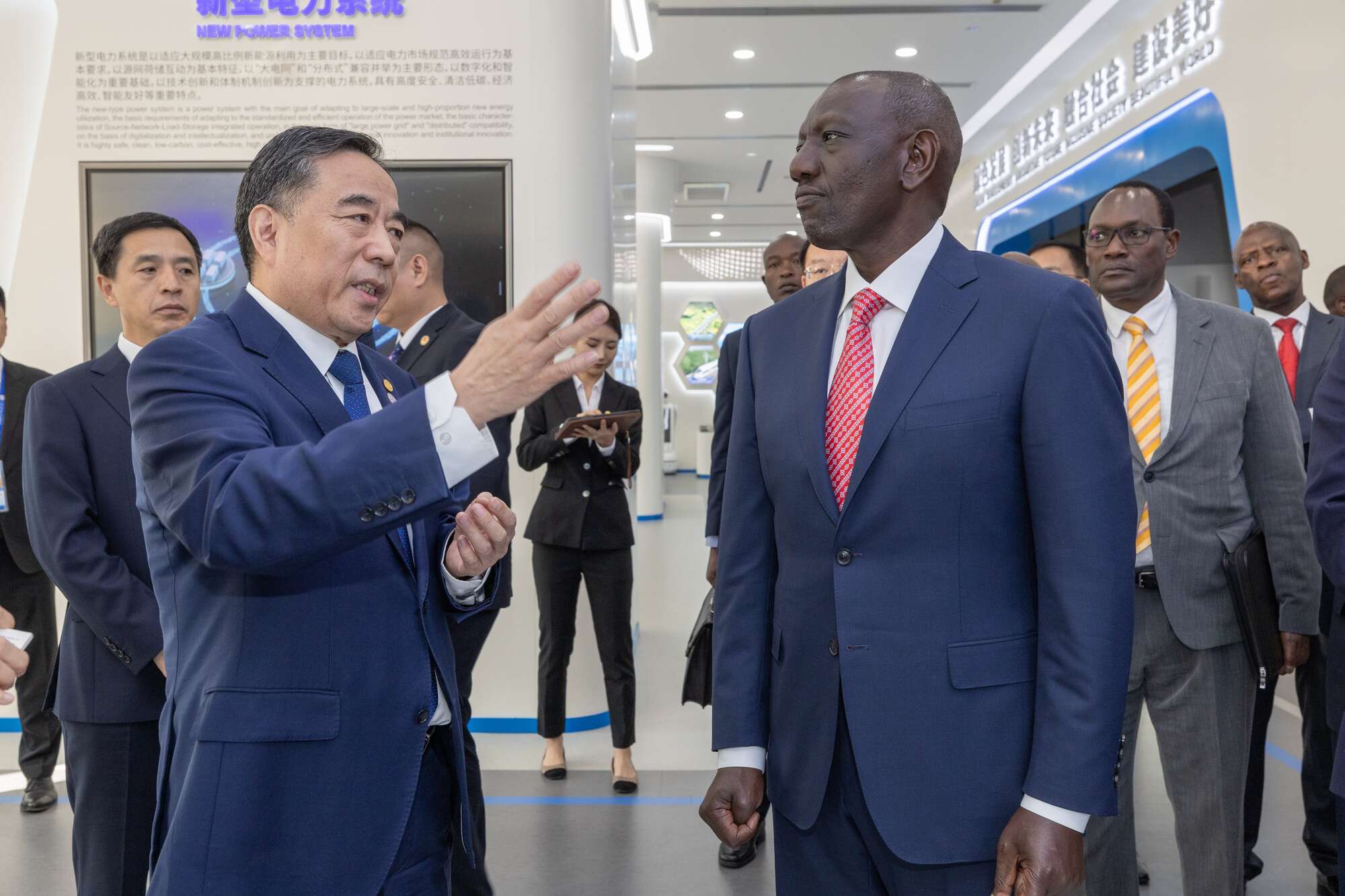President William Ruto maiden trip to Beijing is turning out to be a demonstration of a changed perception of China. Either that or it is a lesson in what to say in public.
On Monday, he told his hosts that Nairobi would improve the investment environment for the Chinese.
“Kenya welcomes China’s support for the Bottom-Up Economic Transformation Agenda and appreciates the interest shown by Chinese companies in key projects in ICT, energy, housing, road and air transport,” he said after meeting Mr Li Xi, a senior member of China’s Communist Party Political Bureau.
“We agreed on creating a conducive environment for Chinese companies that will undertake projects including road construction, railway expansion and airport modernisation.”
Dr Ruto is in Beijing as one of the African leaders invited to attend the forum marking the tenth anniversary of China’s Belt and Road Initiative (BRI). But his trip is also significant because it represents something of a reversal of his previous stance towards the Chinese.
Almost ten months ago, his officials lit a spark that saw Beijing come down hard on Nairobi to protect its nationals from perceived harassment. The culprit was then Trade Cabinet Secretary Moses Kuria, who has since been moved to the Public Service Ministry. Mr Kuria did not make the trip to Beijing. But he may have created a potential rift that the president is now trying to heal.
Kuria’s beef at the time was that the Chinese were invading ordinary retail spaces and stealing Kenyans’ lunch. So he targeted one of them: China Square, owned by a Mr Lei Cheng.
“Who is shopping at China Square?” Kuria asked an audience in February. “Are they the hustlers from Dandora?
“So when I see those (noises) on Twitter, I ask myself: Who is the real stakeholder in this country?”
Kuria wanted to support local retailers who he said were being undercut by the Chinese.
But diplomatic sources say Beijing responded with a fact sheet of its own, showing Kenya that there are at least 30,000 Kenyans in China running legitimate businesses.
What happened after Kuria’s threat to deport Mr Lei was China’s threat to respond in kind, which could be a political liability for Kenya.
Kuria was quickly and publicly contradicted by Foreign Affairs PS Korir Sing’oei.
“No lawful investment actor, irrespective of their nationality, should be apprehensive because the country’s investment regime is non-arbitrary and non-discriminatory,” Dr Sing’oei argued at the time.
“Investment can go anywhere. The government’s job is to attract it. As soon as we start implementing the laws haphazardly or to suit a certain narrative, we totally lose our competitive advantage.”
And when China’s top diplomat Wang Yi came to town in July, Mr Kuria didn’t even appear for a joint photo opportunity with the president at State House.
In Beijing, President Ruto also witnessed the signing of a memorandum of understanding between Kenya and Huawei “that will accelerate Kenya’s digital transformation”.
“Collaboration is essential for the achievement of our digital transformation agenda,” he argued.
Huawei has played a central role in Kenya’s digital communications, including mobile money transfer systems.
But China is not the first country Ruto has reached out to.
In November, he was on an official three-day visit to South Korea, where he agreed with Seoul on $1 billion in financing for projects including the planned tech city in Konza, 60km south-east of Nairobi.
While there, he also said Kenya was improving its home for investment in trade and green energy. A week before the Korea trip, he had told an audience that he wouldn’t be borrowing, saying: “we are going to rationalise the budget and look at what else we can do.”
The public criticism of debt was seen as aimed at China, which has become Kenya’s largest bilateral creditor, with Nairobi owing at least $6 billion.
But in Beijing, Ruto spoke of “partnerships”. Huawei, for example, will be free to “advance our ICT infrastructure and drive digitisation” in key sectors such as transport, e-government, education and health.
“This partnership is vital for Kenya’s Digital Superhighway and the components of the Bottom-Up Economic Transformation Agenda.”
Some observers say President Ruto is unlearning on the job, given China’s indispensable role in building Kenya’s key infrastructure projects over the past two decades, even as Nairobi looks for alternatives.
“Kenya’s diplomacy of high level visit to China will most likely be looking at how to renegotiate Chinese debt, allowing room for more borrowing from the now popular front of the West, largely the USA,” said Nasong’o Muliro, a lecturer and Foreign Policy analyst at the Global Centre for Policy and Strategy.
“In matters of international politics, the IMF-led debt reforms are meant to draw African States like Kenya away from non-strategic debt agreements with China. Bottomline? Governments are now constrained by internal laws on how much debt commitments they can make,” Muliro argued, referring to President Ruto’s assent to the Public Finance Management (Amendment) Bill, which changed the borrowing threshold to 55 per cent of gross domestic product (GDP) in present value terms, a departure from the current numerical debt ceiling. The original limit was set at Sh10 trillion.
Some economists like Dr Samuel Nyandemo, a senior lecturer at the University of Nairobi’s School of Economics, argued that the new law will allow the government to borrow in line with the country’s economic strength, thereby controlling the government’s appetite for borrowing.
“More importantly, this shall bring in a new dimension of more private public participation which is a good practice,” he had told the Sunday Nation.
This could give the president a window to negotiate new financing arrangements for his pet projects in housing and the expansion of the Standard Gauge Railway.
On Monday, Kenya signed a memorandum of understanding with China’s Energy International Group to “optimise flexibility and reliability of electrical power systems and modernise power generation, transmission lines, distribution lines and substations”.
A stable, renewable energy pool will make the country more attractive to investors and help the country’s transition to renewable energy, the president argued.
But the president may first have to reverse the perception that he is abandoning the Chinese. Long before the trip, Kuria had been working through diplomatic back channels to reverse his criticism of the Chinese.
“After the Cabinet meeting, I have this afternoon held a very consultative meeting with the Chinese Ambassador to Kenya (Mr Zhou Pingjian) who called into my office. China is a valued partner in our trade negotiations and we must tap into its enormous market for our products, as we boost our local production,” Kuria said on June 27.
“As a government, we have promised to have a well-structured way for the Chinese investors coming into the country as we also guard our local production.”



